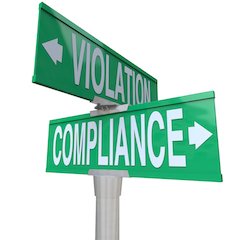The Department of Labor Fiduciary Rule cleared the first step in the process to becoming an official rule when the Office of Management and Budget (OMB), which scores proposals of this nature with financial implications, cleared the proposal for publication. A period of 75 days now follows in which official comments can be submitted, which will then be followed by a public hearing within a month, another comment period, and presumably a final rule.
The DOL has created some new resources to bolster support and understanding of their rule, currently in the proposal stage of the rulemaking process:
- DOL Press Release
- FAQ concerning ‘Conflict of Interest Rulemaking’
- Factsheet
- Exemption #1:
- Exemption #2:
In a news alert released Wednesday, the National Association for Fixed Annuities (NAFA) said it is “highly anticipated” that the proposed rule will be pushed through at an accelerated pace (see graphic at top right), which would see a published final rule in place midway through Q4 2015.
NAFA is currently in the process of preparing an official response to this latest development. NAIFA, AALU and NAILBA had not yet released new statements as of mid-day Wednesday.
Insured Retirement Institute (IRI) President and CEO Cathy Weatherford released the following statement on April 14: “With the process open to public comment, we will now have the opportunity to continue to advance our discussions and to provide informed and constructive comments that will directly address this lengthy proposal. Doing so will help ensure that the 26 million Americans who regularly rely on financial professionals for help can continue to do so.”
The Financial Services Roundtable also issued a statement Tuesday in reaction to the proposed rule:
“We share the goals of maximizing investor returns, maintaining access for modest income investors to advice, and protecting consumers,” said FSR President & CEO Tim Pawlenty. “The Administration’s talking points say the proposal accomplishes all this, but we will need to review the proposed rule to see if that is really accurate.”
FSR has urged the Administration not to propose any rule that would make professional financial advice more expensive or out of reach for the workers and middle class Americans who need it most.
Under the proposed rule, according to Tuesday’s DOL release, retirement advisers will be required to put their clients’ best interests before their own profits. Those who wish to receive payments from companies selling products they recommend and forms of compensation that create conflicts of interest will need to rely on one of several proposed prohibited transaction exemptions.
“This boils down to a very simple concept: if someone is paid to give you retirement investment advice, that person should be working in your best interest,” said Secretary of Labor Thomas E. Perez. “As commonsense as this may be, laws to protect consumers and ensure that financial advisers are giving the best advice in a complex market have not kept pace. Our proposed rule would change that. Under the proposed rule, retirement advisers can be paid in various ways, as long as they are willing to put their customers’ best interest first.”
• To comment about this on Insurance Forums, please visit this new thread: DOL Fiduciary Rule Comment Period Starting
A White House Council of Economic Advisers analysis found that conflicts of interest result in annual losses of about 1 percentage point for affected investors — or about $17 billion per year in total.
The proposal would expand the number of persons who are subject to fiduciary best interest standards when they provide retirement investment advice. It also includes a package of proposed exemptions allowing advisers to continue to receive payments that could create conflicts of interest if the conditions of the exemption are met. In addition, the announcement includes a comprehensive economic analysis of the proposals’ expected gains to investors and costs.
The proposed “best interest contract exemption,” the April 14 DOL release says, “represents a new approach to exemptions that is broad, flexible, principles-based and can adapt to evolving business practices.” It would be available to advisers who make investment recommendations to individual plan participants, IRA investors and small plans. It would require retirement investment advisers and their firms to formally acknowledge fiduciary status and enter into a contract with their customers in which they commit to fundamental standards of impartial conduct. These include giving advice that is in the customer’s best interest and making truthful statements about investments and their compensation.
If fiduciary advisers and their firms enter into and comply with such a contract, clearly explain investment fees and costs, have appropriate policies and procedures to mitigate the harmful effects of conflicts of interest, and retain certain data on their performance, they can receive common types of fees that fiduciary advisers could otherwise not receive under the law. These include commissions, revenue sharing, and 12b-1 fees. If they do not, they generally must refrain from recommending investments for which they receive conflicted compensation, unless the payments fall under the scope of another exemption.
In addition to the new best interest contract exemption, the proposal also includes other new exemptions and updates some exemptions previously available for investment advice to plan sponsors and participants. For example, the proposal includes a new exemption for principal transactions. In addition, the proposal asks for comment on a new “low-fee exemption” that would allow firms to accept conflicted payments when recommending the lowest-fee products in a given product class, with even fewer requirements than the best interest contract exemption.
Finally, the proposal carves out general investment education from fiduciary status. Sales pitches to large plan fiduciaries who are financial experts, and appraisals or valuations of the stock held by employee-stock ownership plans, are also carved out.
Links to the proposed fiduciary rule, prohibited transaction exemptions, economic impact analysis and other materials are available at www.dol.gov/ProtectYourSavings/, and will be published for public comment in an upcoming edition of the Federal Register.
• To comment about this on Insurance Forums, please visit this new thread: DOL Fiduciary Rule Comment Period Starting














